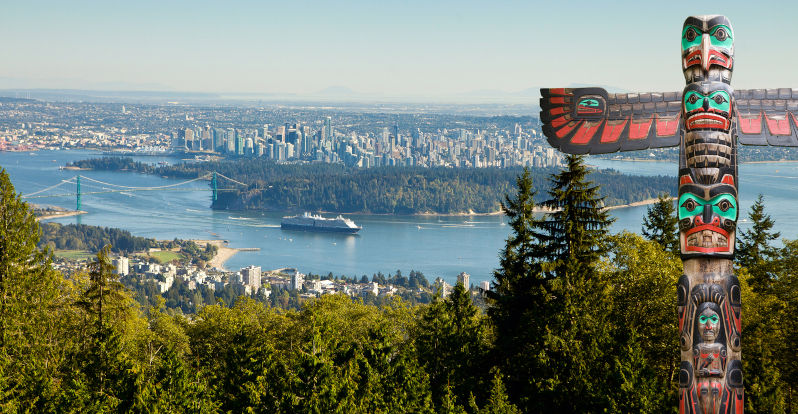Decolonisation is our safeguard against genocide
January 1, 2024
To ensure Aboriginal Peoples freedom from genocide and ecocide, we need decolonisation.
For some, post the Australian 2023 Referendum, questions arise: where to next? More of the same isnt an option; the evidence surrounds us as to why more genocide in all its forms, including assimilation and the ecocide of our territories doesnt work. But urgent, alternative action is needed. In moving forward, how might we secure our ancient Aboriginal connections to country and kin in a way in which we remain free to be self-determining whilst caring for our obligations to country and kin?
Some eyes are cast towards Canada as a model for Aboriginal futures and are looking to legislating aspects of the 2007 UN Declaration on the Rights of Indigenous Peoples, (UNDRIP). The UNDRIP came about as a result of foundational work done by Indigenous Peoples responding to the critical position that we are in, with on-going global genocides and ecocides being perpetrated against us and our lands. The Declaration intended to provide minimum standards which would ensure that the genocides of Indigenous Peoples across the world would come to an end.
I understand that the unintended beginnings of UNDRIP began in 1977 in meetings held in Geneva between Aboriginal Peoples, largely from Canada and the US, who went to the UN to affirm our international identity as Peoples. Those early discussions were appropriated by the UN and were taken up in 1982 when the UN Working Group on Indigenous Populations (UN WGIP) was established. The UN WGIP meetings were largely attended by Aboriginal Peoples. I was one of those participants involved in drafting the Declaration, and since then have written, spoken, and advised on the development of the UNDRIP, but took exception to the process by which the Declaration was passed by the UN General Assembly in 2007. Many are surprised when we say the UNDRIP has its limitations and weaknesses. What happened was that after 1995 the colonial states intervened in the drafting of the Declaration to refer to Indigenous Peoples obligations and rights as being subservient to their interests and jurisdictions. Prior to this the relationship between Aboriginal Peoples and our natural world had been written into the Declaration as recognition of our obligations to care for country for future generations. Aboriginal concepts of obligations were removed, and Article 46 was included to make clear that state territorial integrity would remain dominant and unsettled by any rights or obligations held by Aboriginal Peoples.
Between 1985 and 1994 the draft Declaration was written with input from hundreds of First Nations; the changes made after 1995 were not referred back to the many Aboriginal Peoples who had created the draft. Eventually, the draft was amended by the 2006 UN Human Rights Council and followed by further amendments before becoming the 2007 UN General Assembly Declaration. As a result, Aboriginal Peoples globally were denied the opportunity to represent our concerns, and our free, prior, and informed consent for the final UNDRIP was never given. The UN General Assembly adopted the Draft Declaration on September 13th, 2007.
The Canadian state has built upon their interpretation of the UNDRIP in the enactment of their Federal 2021 United Nations Declaration Act (Bill C-15) also called UNDA. Aboriginal critics of UNDA argue that the Canadian Act has many flaws. One such flaw of UNDA is Section 2(2) which guarantees Indigenous peoples rights remain limited by section 35 of the Constitution Act, 1982. This positions Aboriginal obligations and rights as subservient to the state. That is, Aboriginal rights and obligations are deemed and determined by Canada and are potentially not free from the power of colonialism or an abrogation and diminishment of their ancient and inherent qualities. Further development of the same colonial mode of engaging with Indigenous sovereign people is now underway with the 2023 Canadian Federal United Nations Declaration Act (Bill C-15) National Action Plan.
While Canada is moving to interpret and implement the UNDRIP with all its flaws and weaknesses, the Australian state is poised for what next. Both Canada and Australia are colonial foundations. Will Australia follow Canada? If it does, colonialism will remain the dominant paradigm. There are some simple steps we could take to set the way forward for an alternative paradigm: firstly, to ensure Aboriginal Peoples freedom from genocide and ecocide, we need decolonisation. The Australian state needs to formally denounce the racist doctrine of terra nullius. And it needs to recognise Aboriginal Peoples right to self-determination, according to international law standards. We need land rights to our traditional lands, and the list goes on. While there is much to discuss and add to this list of actions and processes which are needed, we need to have conversations which open up the possibilities for a decolonised future. Perhaps this is an impossible wish list, one I will not see delivered in my lifetime, but that we need to decolonise is for sure. The colonial project is poisonous and needs to end.
